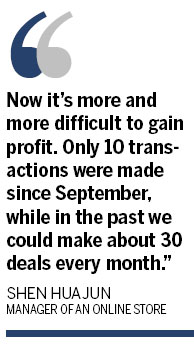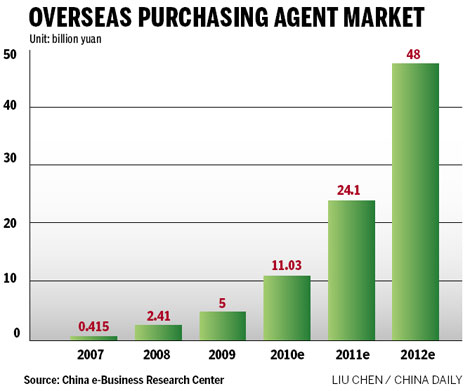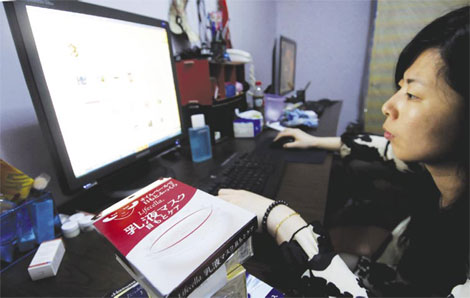Cover Story
Small online importers hit by change in Customs policy
By Lu Chang (China Daily)
Updated: 2010-10-20 10:42
 |
Large Medium Small |
|
Xiao Xiong in Fuzhou, East China's Fujian province, operates two online stores selling foreign cosmetics. Provided to China Daily |
BEIJING - Shen Zixian, the owner of a small online milk powder store, never expected his booming business would be on the edge of collapse after half a year's hard work.
Shen opened a store at taobao.com, China's largest online shopping platform, selling milk powder products from the Netherlands, sent to him through the post.
His business had been increasing rapidly until a recent change in Customs policy, which has driven up costs and has almost forced him out of the overseas purchasing business.
| ||||
Shen is one of many online purchasing agents in China who are feeling the effects of new Customs regulations for mailed goods.
The rules, which came in on Sept 1, tightened import tax for parcels sent from abroad, hitting those who buy products overseas to sell domestically.
Previously, importers had a 500 yuan "free allowance", so if their parcels attracted a duty of, for example, 600 yuan, they would pay only 100 yuan. But this has dropped to 50 yuan, which means importers would have to pay 550 yuan in tax for goods that attracted the 600-yuan duty.
Shen Huajun, a manager of an online store, which sells luxury watches such as Cartier and Rolex, delivered from Japan, said the new tax squeezed out profits from their business.

"Now it's more and more difficult to gain profit," he said. "Only 10 transactions were made since September, while in the past we could make about 30 deals every month."
Shen said customers no longer buy luxury items through purchasers like him when they can obtain the same products at similar prices in their own country.
On taobao.com some online shop owners have posted notices, warning buyers of the rising price or possible delays of their products because of the stricter Customs examination procedures to go through.
Statistics from the Hangzhou-based China e-Business Research Center said the turnover of overseas purchasing agent market hit 7.82 billion yuan from January to June. The volume is expected to reach 11 billion yuan by the end of this year.
Despite the fact the new rules have threatened small purchasing agents who rely on mail services, some online luxury goods retailers are likely to benefit.
A broker from usashopcn.com, which buys products from the United States, said the policy will not affect its business.
"Actually it creates an advantage for us because it reduces the price gap with those small and unauthorized overseas buying agents who are attracting clients with very cheap prices," said the broker, who didn't want to be named.
Fang Yingzhi, an analyst with China e-Commerce Research Center, said the regulations will protect domestic products and reduce tax avoidance, but can hardly be a blow to online overseas purchasing agent industry, which will continue to soar over the next decade.
"The new rule, to some extent, will narrow the prices between Chinese and overseas products," Fang said.
Ding Xiaoxi contributed to this story.
China Daily


